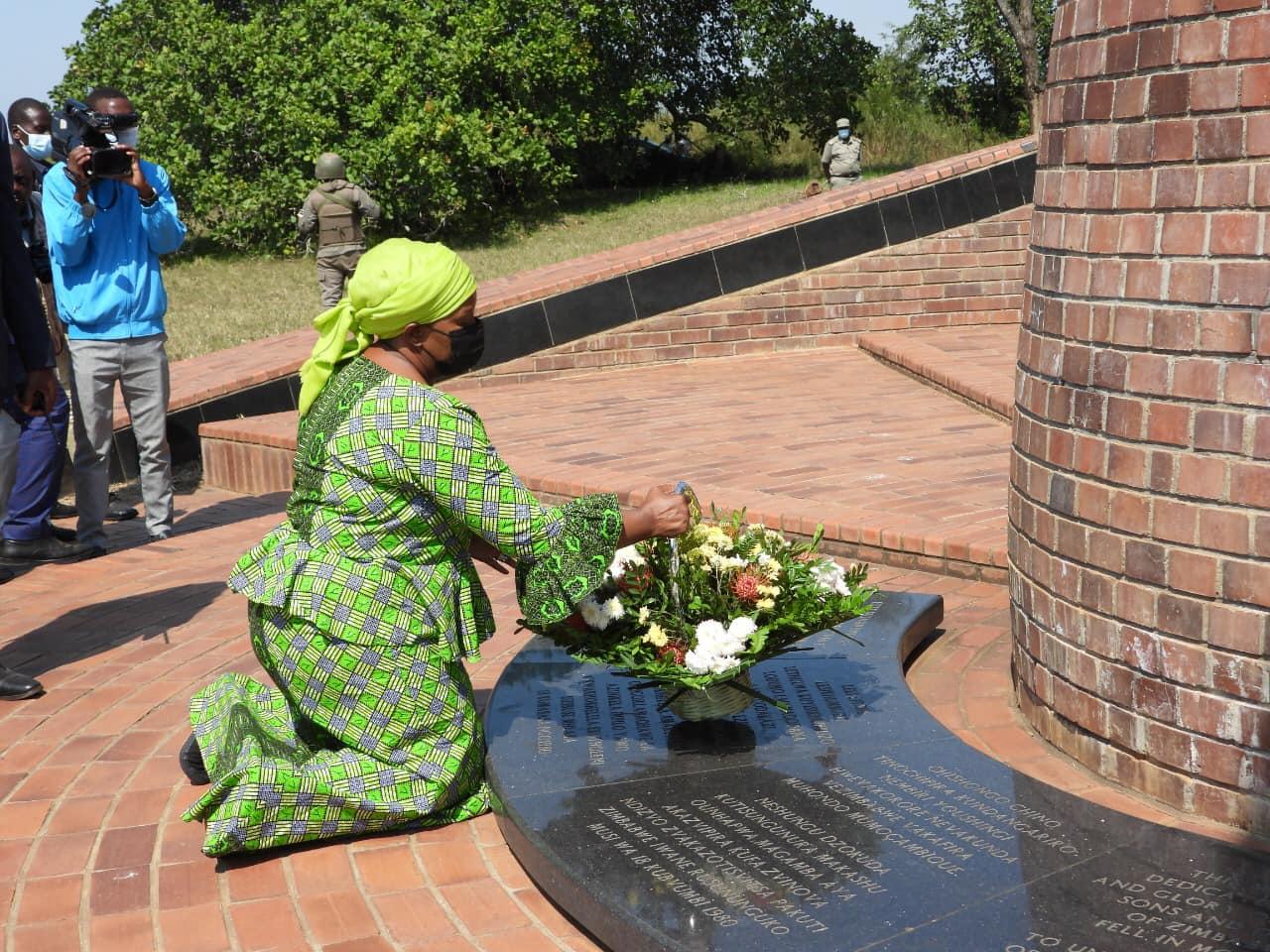Africa-Press – Mozambique. Hundreds of Zimbabweans paid tribute this Sunday to the more than a thousand liberation guerrilla fighters who died in the Tembwe massacre, in Manica province, Mozambique, as they fought to free that neighbouring country.
The massacre took place on November 23, 1977, when war was raging in Zimbabwe between the Zimbabwe African National Liberation Army (ZANLA) and the Ian Smith regime.
As the story goes, Ian Smith learned that a military base had been set up in Manica province’s Tembwe region, and despatched to central Mozambique the mission which carried out the intense bombing which resulted in the death of 1,030 soldiers.
Gift Cagueda, one of the survivors of the massacre, was 17 years old when the three-day bombing campaign took place. After 45 years, he still has fresh memories of the event. The assault on the Tembwe base began around 6:00 a.m., he relates.
“We saw a small plane and thought it was a sports plane. We all shouted, ‘Plane! Plane!’ but, minutes later, there were so many,” Cagueda recalled. “Then we saw paratroopers. Here, the bombing began. The planes were so many that they looked like ants filling the sky. While we were in Mudzingadzi [which was part of Chimoio base], where there were paratroopers, they started to fire on our base. I survived, but I still don’t know how that was possible,” he continues.
On the spot where the remains of the victims lie in mass graves, a monument and a commemorative museum were built. In it are many portraits of the horror.
Every year, a Zimbabwean entourage travels to the site to pay tribute to the country’s heroes.
This year, the delegation was led by Auxillia Mnangagwa, First Lady of Zimbabwe, whose husband, Emmerson Mnangagwa, is also one of the survivors of the massacre.
The First Lady of Zimbabwe said that, in recognition of the heroic spirit of those who fell in the Tembwe massacre, the Mnangagwa government would continue to preserve the site, so that future generations would know how much it cost to liberate Zimbabwe, whose independence would only be achieved in April, 1980, a full 18 years later.
The governor of Manica province, Francisca Tomás, said on the occasion that the province and the country would continue to value friendly relations with Zimbabwe.
“At the moment we are speaking, in Cabo Delgado, Zimbabweans and Mozambicans are fighting together against terrorism, because the two countries do not want warm” Francisca Tomás said.
After the three-day shelling at the Tembwe base, the Smith regime bombed the bridge on the EN7 over the Púnguè River, thus cutting the connection, via Tete, between Mozambique and Zimbabwe.
For More News And Analysis About Mozambique Follow Africa-Press






